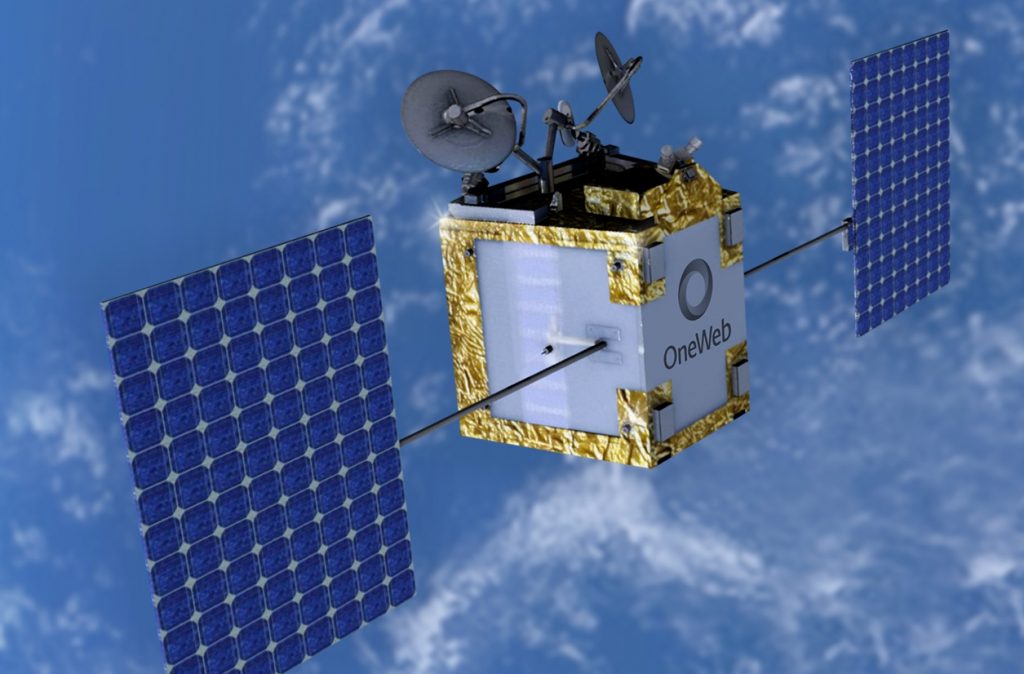Analyst: OneWeb modifies size of orbital fleet
May 4, 2023

Analysts at Quilty Space report that OneWeb’s Gen-1 network will be slightly smaller than originally anticipated. A tweet from OneWeb’s CTO confirmed that the company’s last launch, a May/June Falcon 9 mission, will carry only 16 OneWeb satellites.
That means the final Gen-1 satellite count will be 634, or 14 less than the original plan of 648. The slight reduction shouldn’t impact service, since OneWeb achieved global coverage with 588 satellites and has been launching spares ever since.
Quilty also takes a look at OneWeb’s terminal costs, saying: “As OneWeb approaches the completion of its constellation and merger with Eutelsat, ground terminal costs threaten to hinder its competitiveness in a market where vertically integrated competitors have cheaper solutions. OneWeb must have known this in 2021 when it inked a $73 million contract with Intellian to develop small, affordable Electronically Scanned Array (ESA) user terminals, which showed proof of life in March at Satellite 2023. Without any mention of pricing though, we can only assume OneWeb terminal costs fall somewhere between Amazon Kuiper’s $400 [devices] and the up-to-$10k enterprise-grade terminals it has used thus far to power its way to global connectivity.”
Quilty, in its latest ‘Megaconstellations’ report also covers news from Starlink and that Norwegian Cruise Line is about to trial the Elon Musk broadband service. Quilty says that the cruise industry has long been a purple unicorn for the satcom world – a technically complex and high-value broadband end user demanding a bespoke constellation effort. “That was until the FCC greenlit Starlink in June 2022 to slap its Dishy McFlatface on anything that moves. Now, Norwegian Cruise Line (NCL) joins most major cruise lines in rolling out plans for Starlink maritime service. NCL will trial the service on its Breakaway cruise ship before installing it on seven more vessels in its fleet by year-end.”
Meanwhile, Starlink’s system serving Ukrainian military and government services is under attack by Russia. Quilty said: “A classified US Intelligence report shows Russia’s quest to disrupt the internet access of Ukranian Forces is more advanced than previously thought. Moscow seems to be amping up efforts to jam satellite signals by experimenting with Tobol electronic warfare, originally designed to protect Russian satellites from attack. Tobol targets the satellites directly by uplink jamming or blending unauthorized signals with the original broadcast, which distorts the data satellites receive. The tech could be used offensively, according to researcher Bart Hendrickx who studies Russia’s electronic warfare capabilities.”
Other posts by Chris Forrester:
- Collar departure: “Hard to see a positive read”
- Dish, DirecTV keen to merge?
- Boeing accused of technology theft
- Analyst: Satellite DTD market worth billions
- Bank: Rocket Lab value boosted by Virgin Orbit assets
- Analyst: “TV Industry consolidation inevitable”
- Intelsat: ‘Insider trading’ appeal lodged
- ESA boss praises SpaceX
- How Virgin Orbit lost a billion dollars
